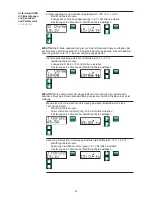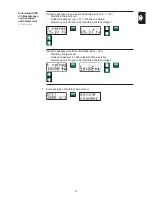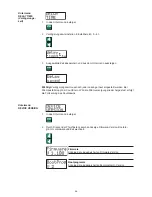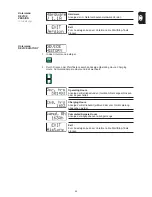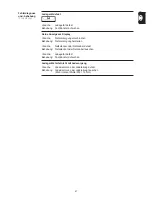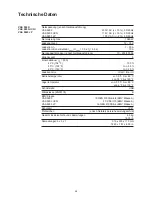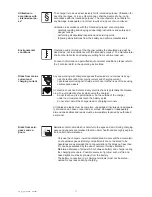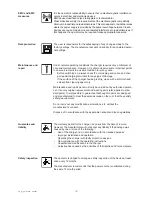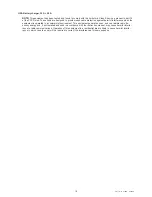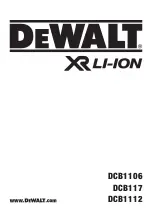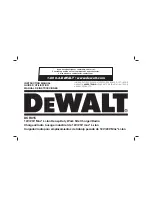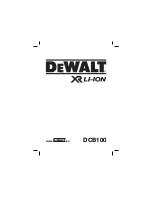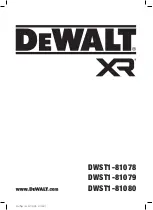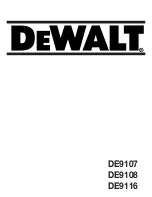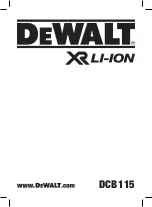
IV
ud_fr_ls_sv_01055 022007
-
If the surface of the charger housing is dirty, clean with a soft cloth and
solvent-free cleaning agent only
Maintenance and repair work must only be carried out by authorised person-
nel. Use only original replacement and wearing parts (also applies to stan-
dard parts). It is impossible to guarantee that bought-in parts are designed
and manufactured to meet the demands made on them, or that they satisfy
safety requirements.
Do not carry out any modifications, alterations, etc. without the
manufacturer’s consent.
Dispose of in accordance with the applicable national and local regulations.
The warranty period for the charger is 2 years from the date of invoice.
However, the manufacturer will not accept any liability if the damage was
caused by one or more of the following:
-
Use of the charger „not in accordance with the intended purpose“
-
Improper installation and operation
-
Operating the charger with faulty protection devices
-
Non-compliance with the operating instructions
-
Unauthorised modifications to the charger
-
Catastrophes caused by the activities of third parties and force majeure
Guarantee and
liability
The operator is obliged to arrange a safety inspection of the device at least
once every 12 months.
The manufacturer recommends that the power source is calibrated during
the same 12 month period.
Safety inspection
The user is responsible for the safekeeping of any changes made to the
factory settings. The manufacturer accepts no liability for any deleted perso-
nal settings.
Data protection
Under normal operating conditions the charger requires only a minimum of
care and maintenance. However, it is vital to observe some important points
to ensure it remains in a usable condition for many years.
-
Before switching on, always check the mains plug and cable, and char-
ger leads/charging terminals for any signs of damage.
Maintenance and
repair
It is the operator’s responsibility to ensure that no electromagnetic interference
occurs in electrical and electronic devices.
EMC device classification (see rating plate or technical data)
Class B devices satisfy the requirements of the electromagnetic compatibility
directive in industrial and residential areas. This also applies to residential areas
where the power supply is provided by the public low-voltage network. Class A
devices can cause mains-borne and radiated interference in residential areas. If
this happens, the operator may be required to take appropriate measures.
EMC and EMF
measures
Summary of Contents for VAS 5903
Page 2: ......
Page 8: ...VI ud_fr_ls_sv_00910 022007 ...
Page 42: ...VI ud_fr_ls_sv_01055 022007 ...
Page 46: ...IV ud_fr_ls_sv_01086 042006 ...
Page 80: ...VI ud_fr_ls_sv_01056 022007 ...
Page 84: ...IV ud_fr_ls_sv_01087 032006 ...
Page 118: ...VI ud_fr_ls_sv_01060 022007 ...
Page 152: ...VI ud_fr_ls_sv_01057 022007 ...
Page 186: ...VI ud_fr_ls_sv_01058 022007 ...
Page 220: ...VI ud_fr_ls_sv_01059 022007 ...
Page 254: ...VI ud_fr_ls_sv_01064 022007 ...
Page 288: ...VI ud_fr_ls_sv_01065 022007 ...
Page 317: ......



